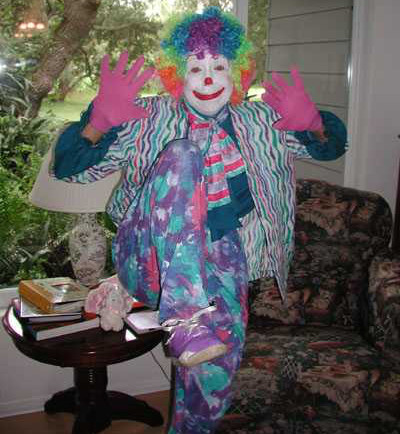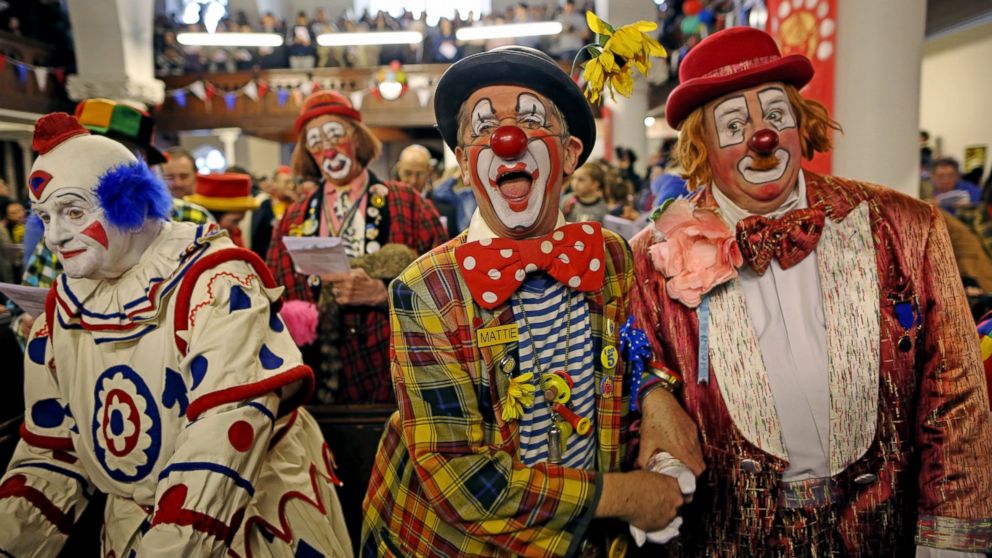All Occasion Performers - Questions
All Occasion Performers - Questions
Blog Article
The Facts About All Occasion Performers Uncovered
Table of ContentsSome Known Facts About All Occasion Performers.The Basic Principles Of All Occasion Performers Not known Facts About All Occasion PerformersAll Occasion Performers for DummiesGetting The All Occasion Performers To Work
He specialized in pigs and burros, which he educated and marketed to other clowns. He also provided an act with a skilled rhinoceros and is the only individual in circus history to provide a tightrope strolling elephant.He was additionally a benefactor that provided generously to lots of charities and he put up the initial monument to soldiers killed during the Civil War - Party clown. Beginnings of the Auguste characterThere is an extensively informed tale about the origins of the Auguste clown. According to the legend, an American acrobat called Tom Belling was executing with a circus in Germany in 1869
The supervisor suddenly entered the room. Belling removed running, winding up in the circus sector where he dropped over the ringcurb. In his embarrassment and haste to escape, he tipped over the ringcurb once more on his escape. The target market shouted, "auguste!" which is German for fool. The manager commanded that Belling continue appearing as the Auguste.
Fascination About All Occasion Performers
For one point, the word Auguste did not exist in the German language up until after the personality ended up being prominent. Among the concepts of the real origin is that Belling replicated the character from the R'izhii (Red Haired) clowns he saw when he visited Russia with a circus (https://www.anyflip.com/homepage/nhfkt#About). Personalities like the auguste absolutely existed previously

The dance later on came to be understood as faucet dancing. It should be noted that there are alternate 'beginnings' for the tramp character"among which was the taking a trip "hoe young boys," or itinerant ranch employees, that rode the rails from one community to one more, wiping the soot away from their eyes & mouth.
More About All Occasion Performers
Keep in mind that the scare wig, exaggerated lips and eyes, oversized clothing and props of the American clown, props such a club soda, stuffed clubs, blowing up cigars, and whistles loaded with residue, are not Grimaldi's. They come from Tambo and Bones. The English blackface comedian Charles Mathews concerned America in 1822 to do and examined black life and personalizeds.
No person recognizes where the mummers' plays and Morris dances came from. In such plays there is a combination of characters including "kings" and "saints", cross-dressing, and blackface functions; the faces of Morris (or "Moorish") dancers were also blackened. The mummer's plays were not for enjoyable. Most were done by inadequate males in the hungry time after Christmas.
The Derby Play of the Tup was executed for food and beer by out of work youths. One such protest has actually gone into American history as the Boston Tea Event.
Things about All Occasion Performers

While not the luxurious affairs we think about today, some early, rougher types of traveling circus were popular in America from Revolutionary times-- George Washington was a follower. Blackface clowns done in them from at least the 1810s and possibly before; they were a staple by the 1820s. The wide red or white mouth repainted on by contemporary clowns is a residue of the blackface mask.
The blackface mask was a clown's disguise, exaggerating the facial functions into an animation, a caricature. The blackface clown may be the forerunner of today's anodyne circus clown, however otherwise the 2 are as contrary as blackface and whiteface.
The Definitive Guide to All Occasion Performers
In several customs the clown would reveal some physical deformity, like a hunchback, dwarfism-- or like Jim Crow, lameness. And due to the fact that he was different, an Others, the clown was allowed to state and do points no one else could.
Satire and apology were main to minstrelsy. It's fascinating that in the West African societies from which most servants came, the poet-singer griot offered the same satirical jester feature when the celebration developed. That might have something to do with the curious (to us, looking back) simplicity with which Southern Blacks approved not just the music however also the undermining humor of minstrelsy.

Emmett Kelly was the most effective understood vagrant clown with his character "Tired Willie."Vagrant clowns are proficient: + jugglers + magicians + pianists + chalk talk artist + bicyclists. There enjoy tramps and upset vagrants. There seems to be a vast range of vagrant address clowns - https://www.intensedebate.com/people/all0ccperf0rm. One of the most conventional thing concerning vagrant clowns is that absolutely nothing is standard except the white mouth, which was derived from minstrel blackface makeup.
Report this page